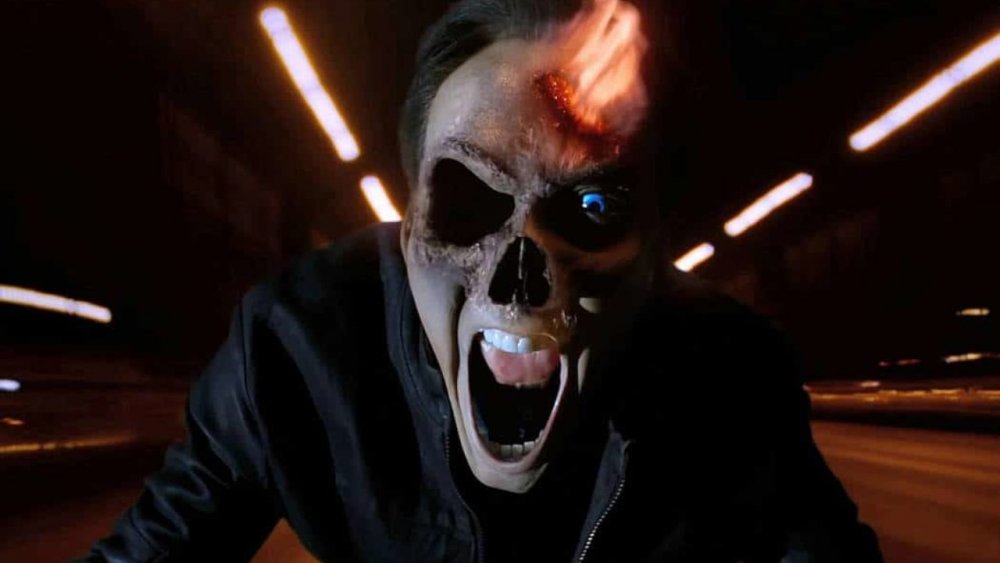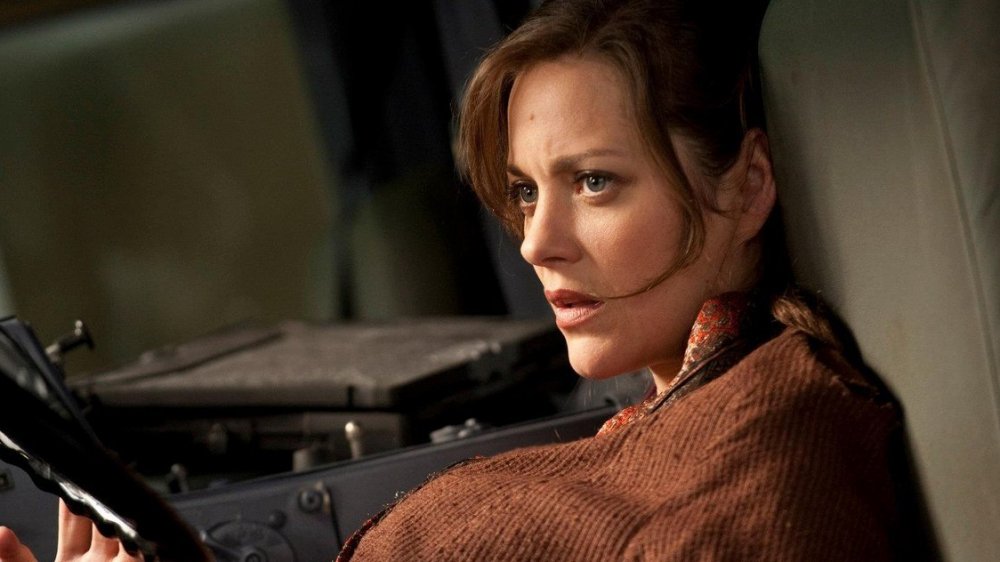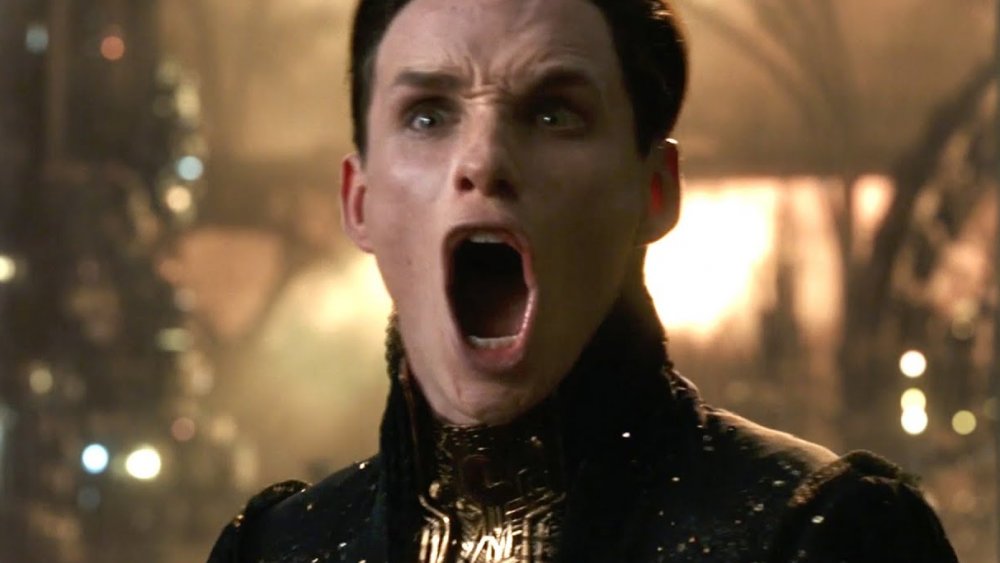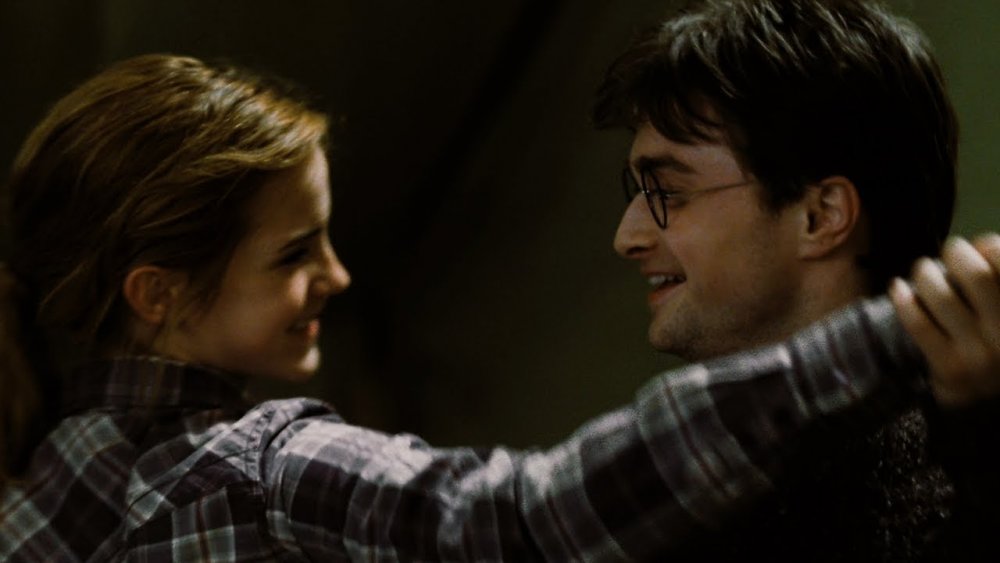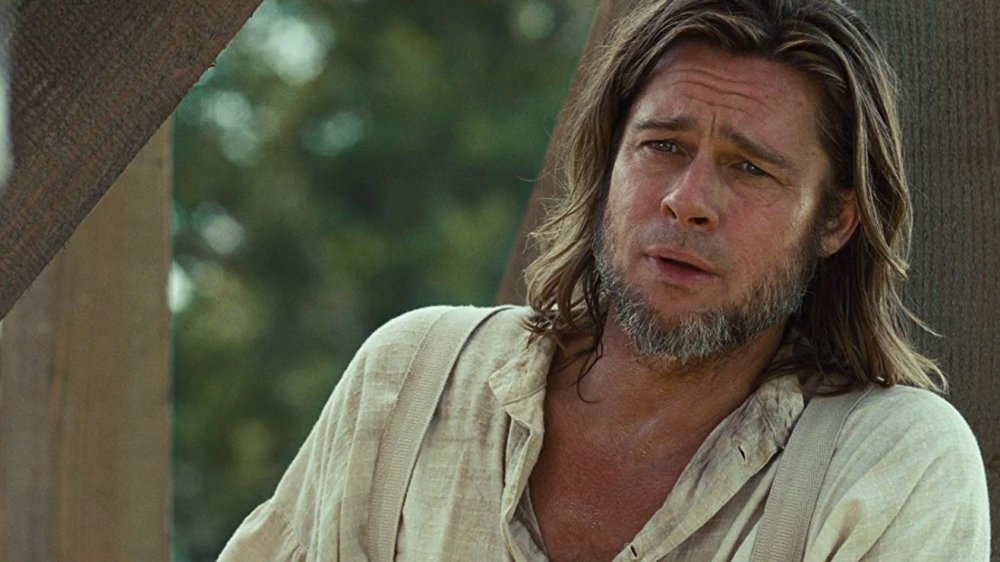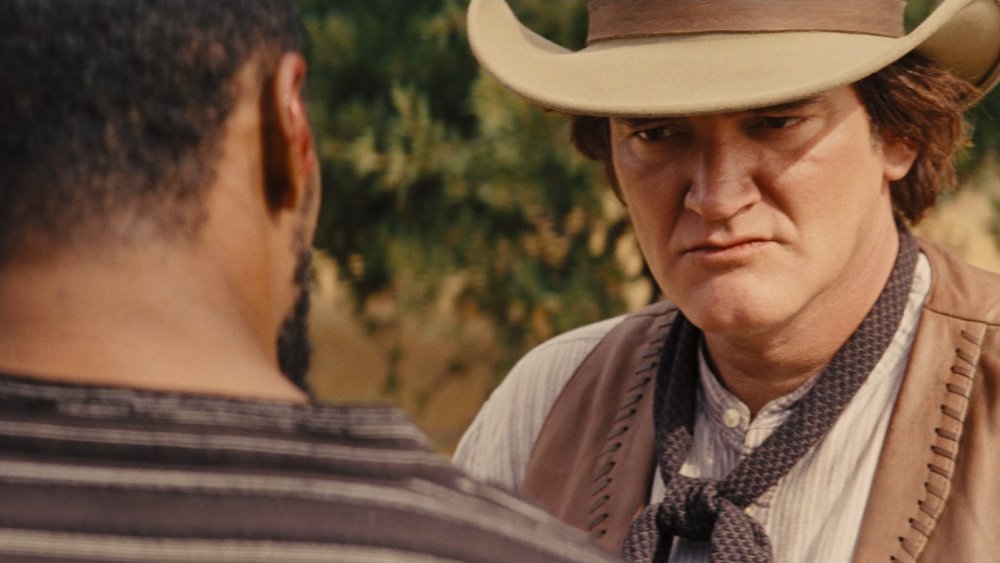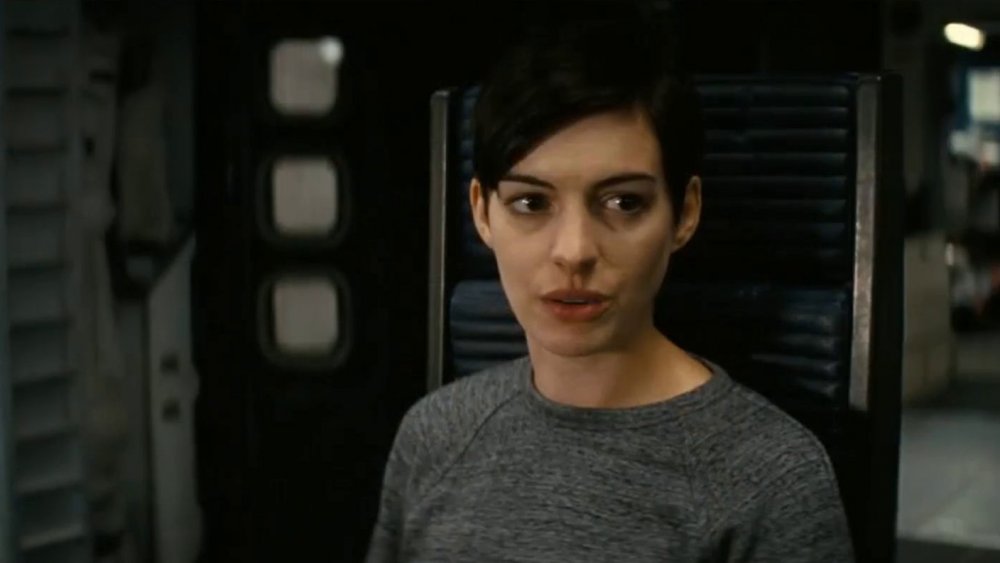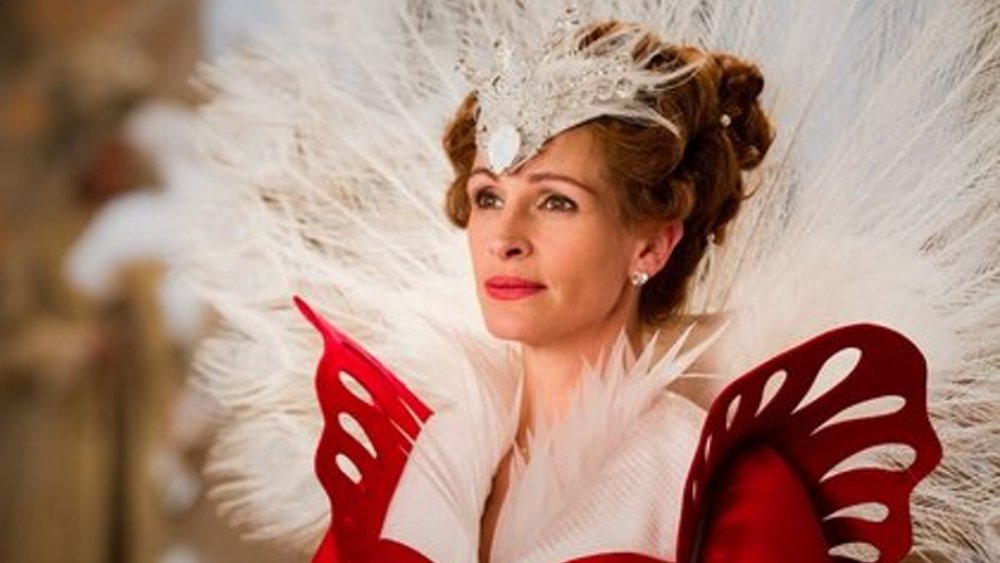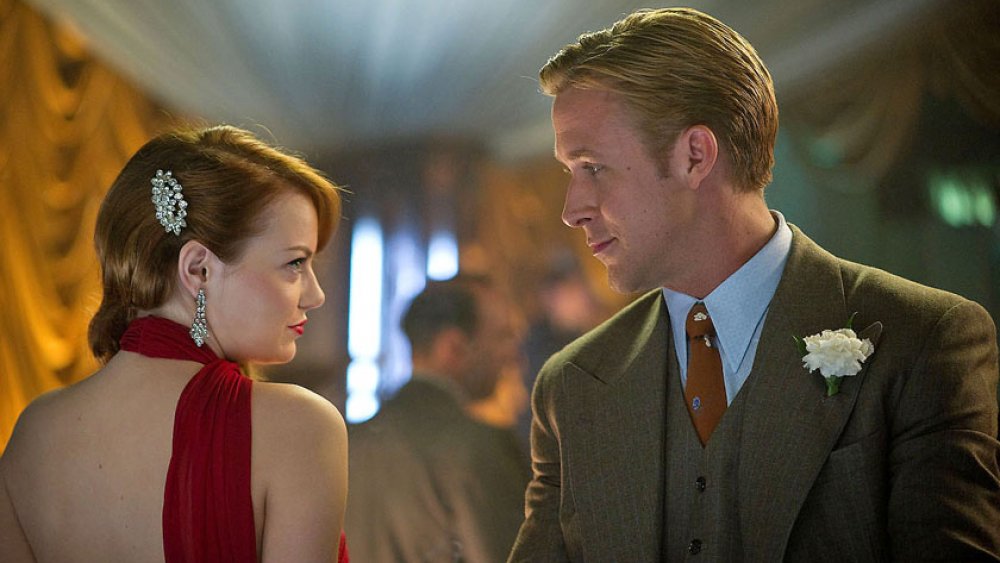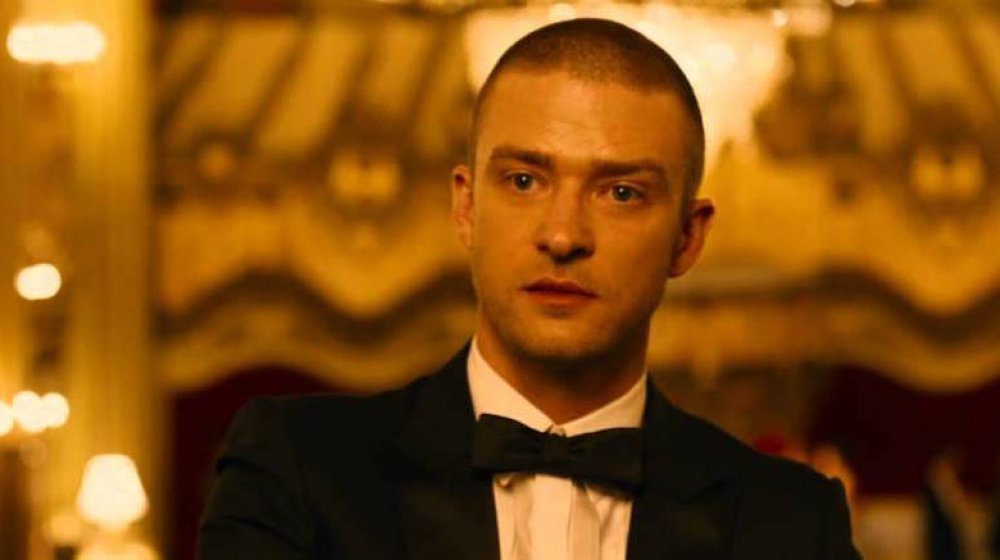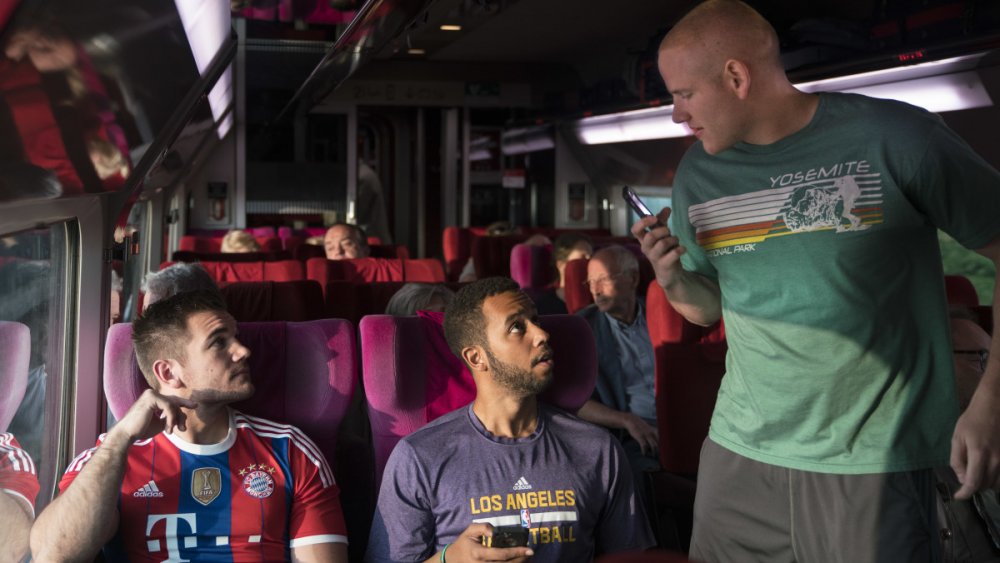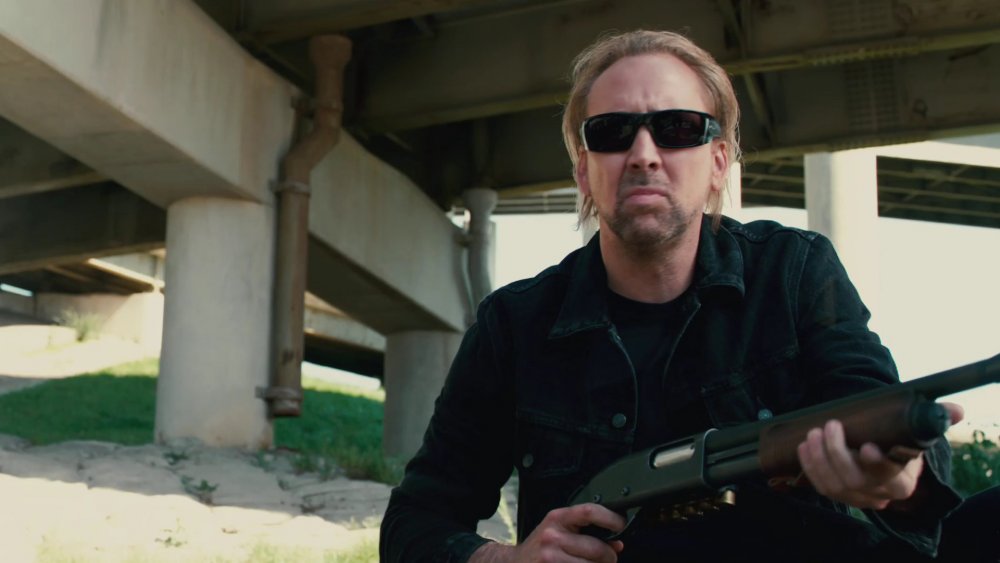Scenes From The Past Decade That Were Acted So Badly We Can't Forget Them
The past decade was chock full of amazing movies and the stellar performances that made them particularly memorable, like Brie Larson in Room, Lupita N'yongo's powerhouse dual role of Red/Adelaide in Us, Leonardo DiCaprio in The Revenant, and so many more. But with the great acting of the past decade also comes a handful of scenes that we can't forget specifically because of how badly they were performed. Sadly, some of these worst offenders are incredibly talented performers, many of whom have a laundry list of accolades for their immense talents.
But everyone has bad days at work, and unfortunately for this crew, their bad days have been immortalized on film for the entire world to see and relive whenever they want to. From hokey death scenes to badly written monologues, and characters appearing that make no sense in the context of the movie, the 2010s had many cringeworthy acting moments that will go down in cinema infamy. So what were the worst acted scenes of the past decade? Let's see.
The death of Talia al Ghul in The Dark Knight Rises (2012)
The concluding chapter of Christopher Nolan's gritty Dark Knight trilogy ended with a bunch of explosive bangs thanks to Bane (Tom Hardy) and his associates, but also with a bit of a fizzle featuring the super unfortunate in-movie death of Marion Cotillard's Miranda Tate/Talia al Ghul. After orchestrating a series of huge protests with a rising death toll of innocent Gothamites, Talia al Ghul crashes her truck and with a melodramatic gasp and sigh, falls back dead — but not before detonating her final bomb. The moment is so incredibly hokey and laughable that would have been perfectly matched in the campy Adam West-led Batman TV series, but coming during Nolan's take on the franchise, it feels hugely out of place.
Jupiter Ascending (2015)
We don't see a lot of Shakespearean villain-style monologues these days, and it's for good reason. They don't tend to sound authentic outside Shakespeare's context, even for a megalomaniacal character, and instead come across as painful exposition that ends up being funny rather than menacing. For example, look at Eddie Redmayne's portrayal of Balem Abrasax in the Wachowskis' space opera Jupiter Ascending, which follows a young Earth woman named Jupiter (Mila Kunis) who learns that she's actually interstellar royalty — a revelation that puts Balem's control of the universe in jeopardy.
Jupiter Ascending is filled with cringeworthy moments, from Channing Tatum's eyeliner to Kunis' overly earnest performance, but Redmayne wins for one of the worst acted scenes of the past decade. "I CREATE LIFE," he screams before whispering, "and I destroy it." In the years since, Redmayne himself has admitted his work in Jupiter Ascending left a lot to be desired. In an interview with GQ (via CinemaBlend), he said, "I won a prize for it for the worst performance of the year. So, yeah, it was a pretty bad performance by all accounts."
Harry and Hermione's dance in Harry Potter and the Deathly Hallows Part 1 (2011)
For many Harry Potter fans, the fact that Hermione Granger (Emma Watson) ended up with Ron Weasley (Rupert Grint) and not Harry (Daniel Radcliffe) was an unsatisfying way to end the characters' story. Harry Potter and the Deathly Hallows Part 1 did its part to muddy those waters by featuring an intimate scene between Harry and Hermione while Ron is off looking for Salazar Slytherin's locket Horcrux. In order to make a despondent Hermione buck up for a minute, Harry asks her to dance, and they hip and dip around awkwardly to Nick Cave's haunting song "O Children."
The actors look incredibly uncomfortable not just dancing with each other, but on their own, and no amount of fancy camera work could have helped them pull off the scene. If it weren't for Nick Cave's vocals and beautiful lyrics, the moment would have been a complete disaster even as it foreshadows Ron's eventual jealous blow-up about Harry and Hermione's possibly romantic feelings for each other.
Brad Pitt in 12 Years a Slave (2013)
Hailed as one of 2013's most powerful films with a sizable collection of awards to go along with it, 12 Years a Slave recounts the real-life story of free man Solomon Northup (Chiwetel Ejiofor) who gets kidnapped and enslaved again until he finally manages to escape, reuniting with his family. The film portrays the brutality of slavery with an unflinching gaze from director Steve McQueen, as well as the added injustice that Northup begins the story as a man who already "earned" his freedom. Needless to say, the white folks in this movie are varying degrees of evil as they rape, torture, and exploit their slaves — except for Brad Pitt's character Samuel Bass, basically the one benevolent white person in the film. It's with Bass' help that Northup is finally reunited with his wife and children.
Unfortunately, Pitt's performance leaves a lot to be desired. His accent is as stilted as his line delivery, reminding viewers of his role in Interview with the Vampire — and not in a good way. It makes one wonder why he's in this movie at all. As it turns out, Pitt was one of 12 Years a Slave's producers, which is probably what we have to thank for this out-of-place acting in an otherwise powerful movie.
Quentin Tarantino in Django Unchained (2012)
Quentin Tarantino has a long history of inserting himself into his movies, and Django Unchained is arguably one of his worst cameo moments. This antebellum revisionist history features Jamie Foxx as Django, an escaped slave out to wreak bloody vengeance on slavers, including Monsieur Candie (Leonardo DiCaprio), who has also kidnapped his love Hildi Von Shaft (Kerry Washington).
As Django's rampage heats up, the movie cuts to a flashback in which Tarantino appears, speaking in a dodgy Australian accent while going on a bizarre rant before Django kills him that completely derails the climax of the film. Yahoo! News UK suggested that Tarantino sported an Australian accent because he couldn't do a passable Southern one, which begs the question of why he was even included in the movie at all — other than his director-sized ego, that is.
Anne Hathaway's monologue in Interstellar (2014)
Sometimes there's just nothing even the best actors can do when the script veers into overwrought territory, which is unfortunately the case with Interstellar, Christopher Nolan's story about the intersection of science, technology, and family — as well as wormholes and event horizons, since Nolan can't make a movie without a mind-bending twist or two.
Sadly, the audience is well yanked out of the complicated but well-crafted story when Anne Hathaway's character Amelia Brand prattles off a Hallmark greeting card of a monologue that even includes the phrase "love transcends dimensions of time and space" as she makes her case that love is a quantifiable force in the universe that can actually be used as a tool of measurement. Even Hathaway's extreme talent can't make the monologue sound anything but forced. Thankfully the scene is only two minutes of pure cheddar in an otherwise compelling sci-fi drama, but it's also enough to stick out as one of the worst acted scenes of the past decade.
Julia Roberts in Mirror Mirror (2012)
"Mirror mirror on the wall, who's the most lackluster of them all?" The answer would be Julia Roberts as Queen Clementianna in 2012's Mirror, Mirror, aromantic fantasy retelling of the Snow White legend. In her defense, Roberts doesn't play many villains, which may explain why her evil queen doesn't seem very vicious at all. Add Roberts' cringe-inducing British accent and it's hard to choose which of her scenes is actually the worst.
It's such a shame, because how dynamic and how much fun would a believably evil Roberts have been in this story? She could have given Angelina Jolie's turn as Maleficent a run for her winged money. Roberts had the potential to set a new bar, but instead contributed to several of the worst acted scenes from the past decade.
Ryan Gosling in Gangster Squad (2013)
With accomplished performances like a drug-addicted teacher in Half Nelson, a husband who has given up on himself in Blue Valentine, and the wealthy businessman who murdered his girlfriend in All Good Things — among so many other meaningful performances — it may seem strange that Ryan Gosling would ever end up on any worst-of list for bad acting. However, his strange creative choices in Gangster Squad, coupled with a number of other issues with that film's production, make Gosling's performance in the movie particularly glaring.
But the worst part might be the squeaky wannabe 1940s gumshoe accent that sounds like Gosling has been micro-dosing helium. This is particularly off-putting when he tries to be sexy, culminating in this super awkward moment with co-star Emma Stone. Spoiler alert: the scene is such a dud it might affect how you see Gosling in any subsequent roles, too.
Justin Timberlake in In Time (2011)
When Justin Timberlake crossed over into movies it was a bold move, but one that paid off as he nailed performances in dramas like Alpha Dog as well as comedies such as Friends with Benefits. This kind of range can be something that takes years to successfully develop, but Timberlake pulled it off — as long as you're willing to forget the dystopian future action caper In Time.
The year is 2169 and humans are now engineered to die on the moment of their 25th birthday, unless they have the money to buy themselves more time. While In Time 's dramatic story certainly left room for plenty of affecting moments, they're undermined by the way Timberlake's Will Salas runs around like a dead-eyed sociopath as he tries to outrun the clock to his death. His James Bond reference is particularly eye-roll-inducing.
The cast of The 5:17 to Paris (2018)
It was a real-life event that made news around the globe: Three American men traveling from Amsterdam to Paris thwarted a would-be terrorist mass shooter through their own quick thinking and selfless bravery. Spencer Stone, Anthony Sadler, and Alek Skarlatos wrestled the weapon from the gunman and saved the life of one of his victims, American Mark Moogalian, who was the first to identify the terrorist. Later, French authorities found the shooter had been armed with 300 rounds of bullets, more than enough to have killed most of the people on the train had he not been stopped.
Clint Eastwood directed The 5:17 to Paris and, in a surprising move, decided to cast the four American survivors, including the gunshot victim Moogalian, as themselves. Unfortunately, the experiment didn't exactly pay off in this big-budget Hollywood recreation of real events. These men are heroes, and did an incredible service for their fellow passengers, but they're not professional actors, and it's very clear to audiences.
Nicolas Cage in Drive Angry (2011)
The 2010s saw Nicolas Cage in a number of dreadful movies, but Drive Angry stands out. The actor delivers a furious but empty turn as John Milton, a man who's been dead 10 years and returns to Earth from Hell in order to save his infant granddaughter from being sacrificed to Satan. His one-liners fall so flat you'd think an ACME truck rolled over them — "What's Satan gonna do, huh? Not let me back in?" — almost eclipsed by Amber Heard's wannabe tough gal Piper, whose atrocious Southern accent isn't even the worst thing about her character.
Still, Cage is the "winner" here in terms of terrible moments. It's hard to pick a least favorite — the absurd gunfight sex scene? Milton peeing fire? Cage rebounded in later years with more critically acclaimed fare like the gonzo Mandy, but for a decent chunk of the decade, it seemed like he may have permanently lost his way — and Drive Angry is a perfect example of why.
